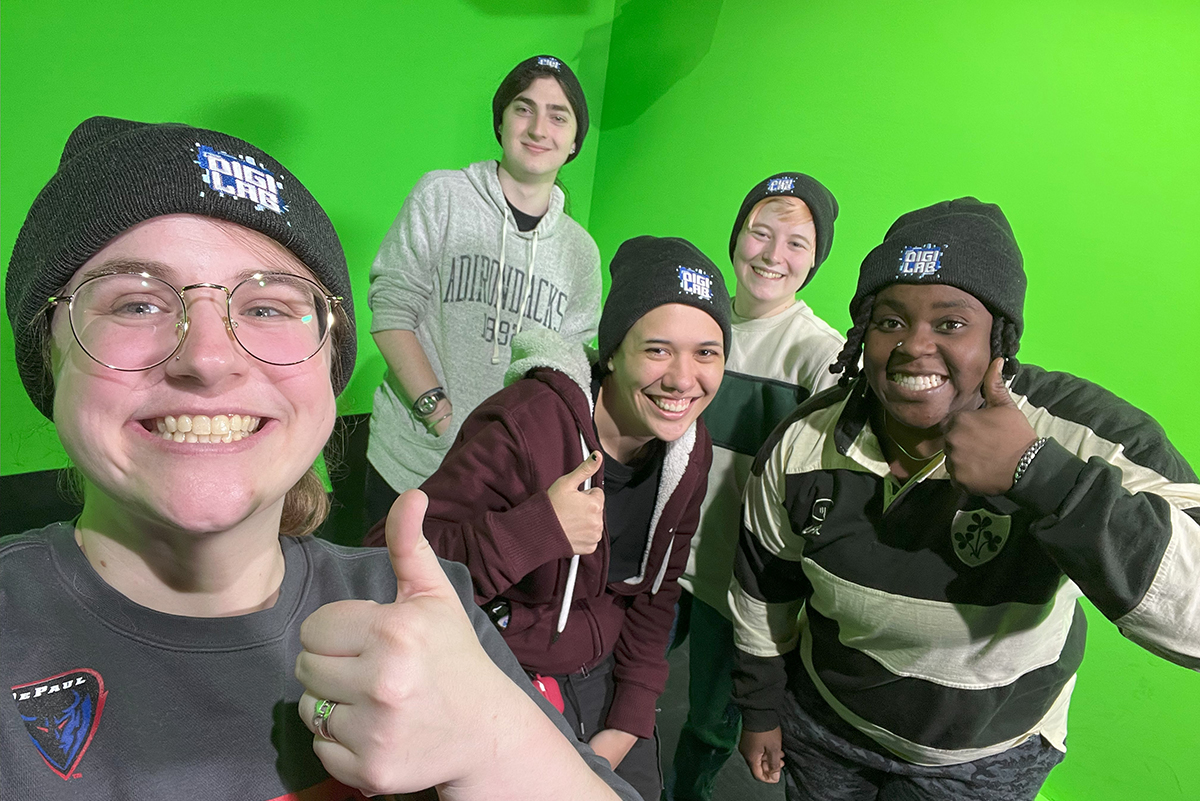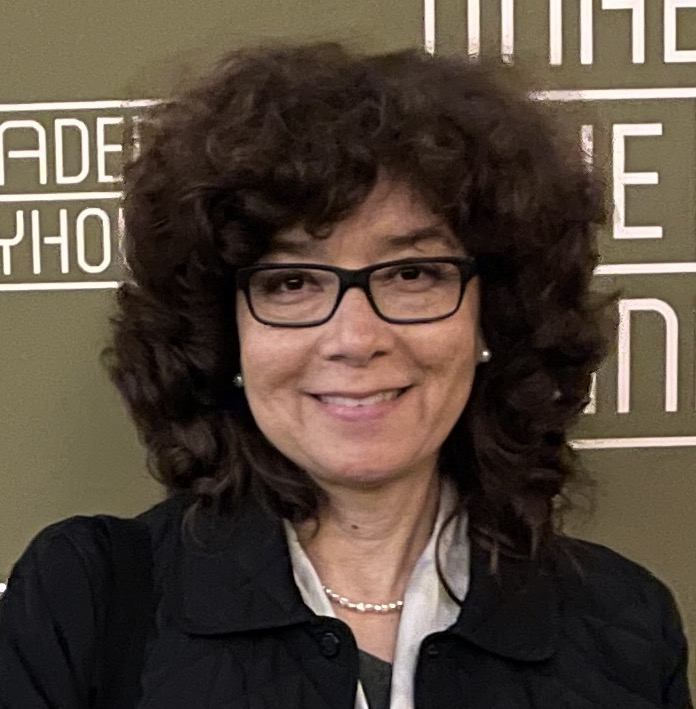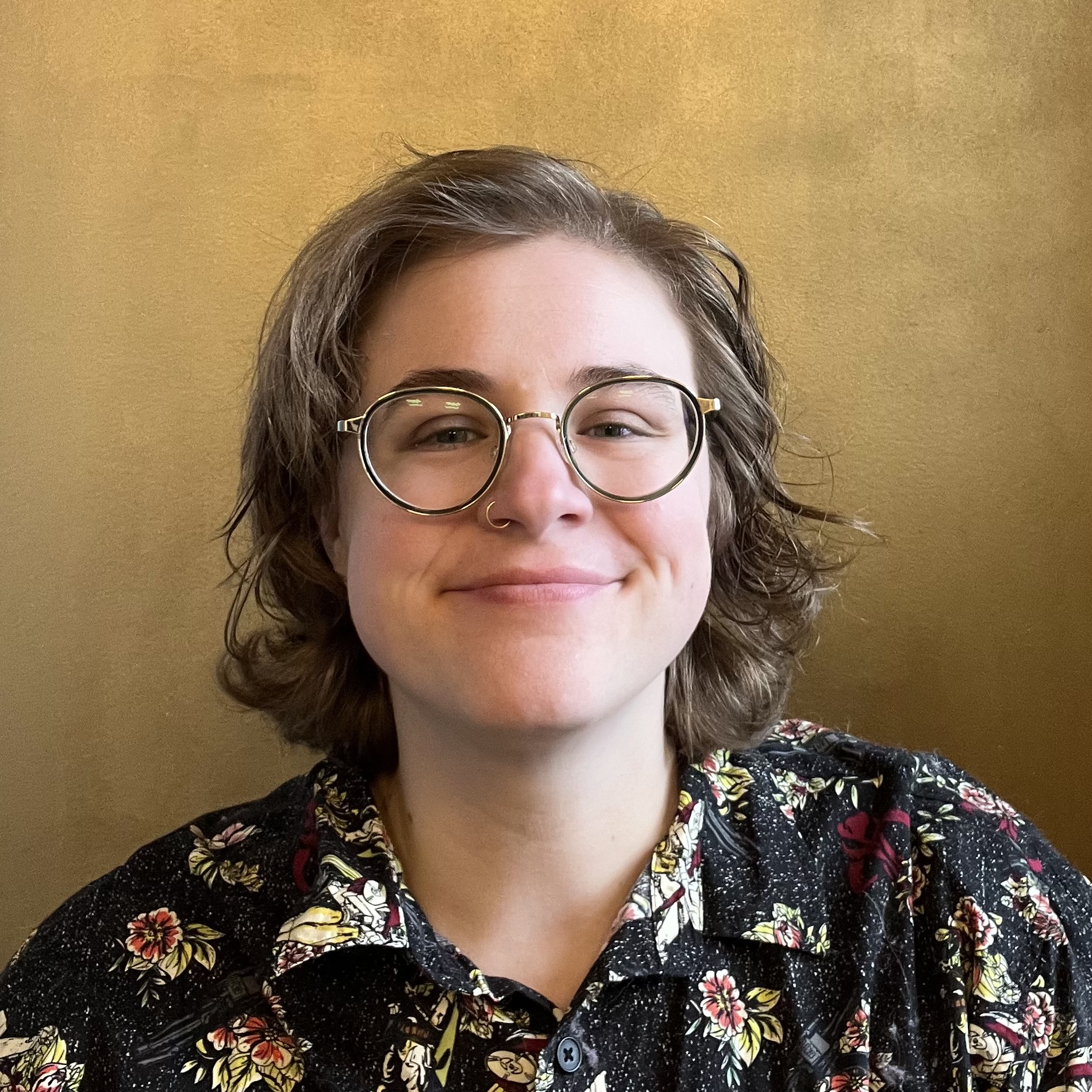 Game design instructor Jes Klass received an AGIF grant to support projects at the DePaul Instructional Game and Innovation (DIGI) Lab.
Game design instructor Jes Klass received an AGIF grant to support projects at the DePaul Instructional Game and Innovation (DIGI) Lab.Cybersecurity and social justice. Games and education. For DePaul faculty members Janine Spears, professor of security and information systems, and Jes Klass, creative director of DIGI Lab and instructor of game design, these unlikely duos are not only likely, but transformative.
DePaul University has awarded both Spears and Klass an Academic Growth and Innovation Fund (AGIF) grant, which supports innovative and revenue generating academic projects at DePaul.
Spears will use her funding to create a new cybersecurity clinic at DePaul that builds on her cybersecurity 390 class, which allows students to use their skills to provide free risk assessment, internal audits and security policy reviews for nonprofits in Chicago.
“Students apply their education toward finding security vulnerabilities and free or low-cost solutions that improve the security of under-resourced nonprofits who cannot afford expensive consultants,” Spears says.
Spears will connect with nonprofits through Miranda Stanberry-Wallace and Howard Rosing of DePaul’s Irwin W. Steans Center, which incorporates nonprofits into service-learning courses at the university. She and her collaborators in the School of Computing, Filipo Sharevski and Ryan Healy, are partnering with David Wang and Mark Shore in the Driehaus College of Business and Max Halveston in the College of Law to enhance the clinic services.
“Our interdisciplinary partnership expands the clinic’s portfolio services we can offer to nonprofits and later, small businesses,” Spears says. “I’m excited about further developing these relationships.”
 Janine Spears, professor of security and information systems
Janine Spears, professor of security and information systemsThough the clinic is in early development, Spears says students with cybersecurity experience outside of her class are encouraged to join the clinic once it is launched. Additionally, business, law and cybersecurity students will collaborate on clinic projects for nonprofits and small businesses. The real-world experience gained from clinic projects will help build their resumes and prepare them for the cybersecurity workforce.
“The clinic is focused on experiential learning for students,” Spears says. “I notice how proud and inspired students are when they see how their finished projects help under-resourced nonprofits with important social missions. This inspires me to keep working on the project.”
Klass’ project will focus on another unique technological initiative — education through games and play. She is uniquely positioned for this project as creative director of the DePaul Instructional Game and Innovation (DIGI) Lab, which is a unit in the Center for Teaching and Learning dedicated to collaborating with university partners to develop interactive D2L content, digital games, analog games and simulations.
Klass and the DIGI students collaborated with DePaul’s Study Abroad Office to develop the popular Buddy Abroad board game, which provides wellness monitoring preparation and packing best practices for students who will be studying abroad. Her current projects expand more into the digital world of gaming with students leading the way. Similarly to Spears, Klass will expand the current DIGI staff by hiring DePaul students to be mentored by the current staff.
DIGI is also collaborating with many other DePaul organizations and colleges. Klass says she is currently working on projects with the Office of Student Involvement, the College of Communication, the School of Nursing, the Jarvis College of Computing and Digital Media and the Driehaus College of Business.
“We collaborated with the College of Business on a big puzzle hunt around campus,” Klass says. “These collaborative puzzles led students strategically around DePaul’s Loop Campus so that they learned about different resources. That’s just one of the ways we can offer education, knowledge, and community through gameplay.”
 Jes Klass, creative director of DIGI Lab and instructor of game design
Jes Klass, creative director of DIGI Lab and instructor of game designKlass is also working with the School of Nursing to integrate virtual reality into their curricula. She and the DIGI students are opening an extended reality studio in DePaul’s Richardson Library where students, faculty and staff can learn about virtual reality in education through workshops, lunch and learns and drop-in time.
“The mindset we have at DIGI is that everybody can learn something from somebody else,” Klass says. “Being able to showcase how student leadership helps others is something that aligns with the mission and values of DePaul.”
Klass and DIGI primarily use the Unity Game Engine to develop browser-based games, which she wants to build upon by beginning to develop for gaming consoles such as Nintendo Switch and PS5 through the AGIF funding. This will be valuable for expanding the reach of DIGI projects, but also give experience to the DIGI student workers that will set them apart as they graduate and go into the games industry.
“Gaming really helps engage students while giving instructors a chance to see their students try different modes of education and understand that learning is evolving,” Klass says.
Though Spears’ and Klass’ projects are just blossoming, it will be exciting to see the unique and innovative ways DePaul faculty and students imagine different applications for technology that serve not only DePaul, but outside communities as well.